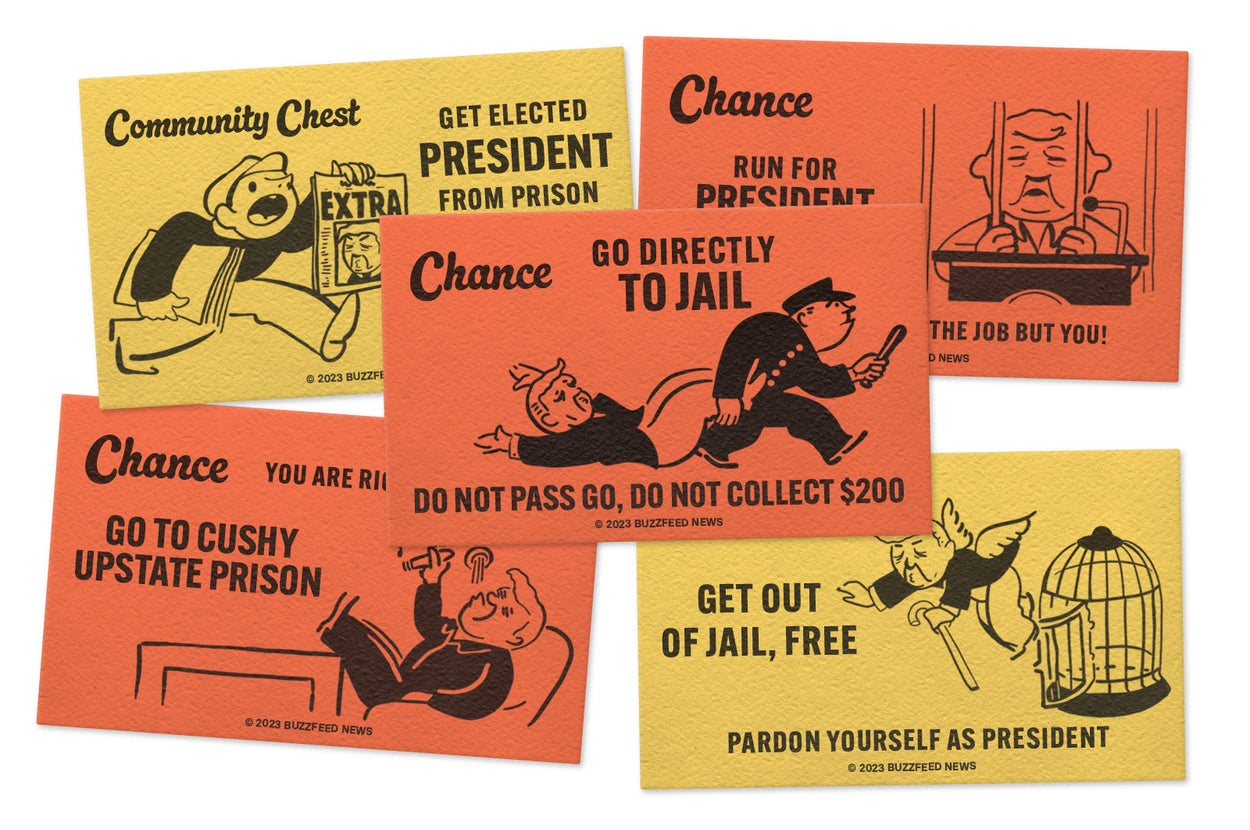If former President Donald Trump were to be convicted of a crime, would he be sentenced to a typical minimum-security prison or would his circumstances dictate a different path? The speculation surrounding the potential incarceration of such a high-profile figure brings numerous questions to light about how it would be handled.
In conversations with legal experts, it’s generally agreed that Trump, like many white-collar criminals, may end up in a minimum-security facility. However, according to Alexander Reinert, a professor at Cardozo Law School, while these facilities offer a less harsh environment compared to maximum-security prisons, they’re still prisons where freedoms are substantially restricted. “The biggest difference, is generally in the nature of the housing, such as a dorm setting rather than a traditional cell. Yet, your freedom is still severely constrained while you’re within any correctional facility,” Reinert explained.
But for someone as prominent as Donald Trump, whose notoriety far surpasses others who have faced prison time—Trump’s incarceration situation might pose unique safety and security challenges that aren’t typical for other inmates. Discussing hypotheticals, given his high profile, these challenges extend to whether he would be safe in a general population setting or would need specialized security arrangements potentially involving separation from general population or even continued protection by the Secret Service.
“The type of security and safety provision required for a high-profile individual like Trump would arguably be easier to managed in a more controlled, higher-security setting,” Reinert added. When looking at prior cases of celebrities or powerful figures in minimum security settings, they have stirred debate about whether those facilities are secure enough, given these facilities often offer more freedoms and less stringent confinement conditions.
Importantly, if Trump were to be convicted at the state level, he wouldn’t be sent to a federally managed minimum-security prison—often dubbed “Club Fed” in popular culture—since those are designated for federal offenders. Reinert points out that state cases are handled by the respective state’s Department of Corrections, and thus, the type of facility chosen would depend on their assessment and requirements as stipulated by law.
Turning the topic to politics, a conviction poses yet another intriguing question: Could Trump still run for president if incarcerated? As pointed out by legal analysts, constitutionally, there’s nothing to prevent someone from running for president as long as they meet the age, citizenship, and residency requirements—even if they are behind bars. In fact, Trump himself has alluded to continuing his political ambitions despite potential legal encumbrances. During a recent talk at the Conservative Political Action Conference, he mentioned that an indictment wouldn’t deter his campaign efforts. “It’d probably enhance my numbers,” he was reported as saying.
However, being incarcerated presents practical difficulties for conducting an effective presidential campaign. “He wouldn’t be able to participate in rallies, his communication would be severely restricted, and his contact with both people and resources would be curtailed,” Reinert explained. Moreover, historical precedent shows that while it’s possible to receive votes while imprisoned—as demonstrated by Socialist candidate Eugene V. Debs in 1920—it’s nevertheless a substantial impediment, both logistically and reputationally.
Finally, if Trump were to secure the presidency while facing state-level charges, the question of whether he could pardon himself arises. However, presidential pardons only apply to federal crimes, leaving state convictions outside the reach of this executive privilege. As legal experts point out, even if Trump were to attempt a self-pardon for federals crimes, its validity would likely be challenged and could potentially lead to further legal actions, including impeachment for abuse of power.
In summary, the scenario where Donald Trump faces imprisonment brings with it an array of complex legal, security, and political questions—each intertwined with constitutional, state, and federal regulations, not to mention the court of public opinion. Whether these theoretical situations come to pass remains to be seen, but their discussion certainly underscores the unprecedented nature of Trump’s legal and political saga. As cases progress and more information becomes available, what is clear is that the potential outcomes could have wide-reaching implications on various aspects of law, governance, and civil society.









